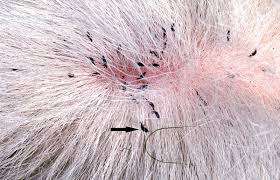Feeding Chickens: Essential Nutrients, Guidelines, and Tips

Proper nutrition is crucial for the health, productivity, and overall well-being of chickens. Feeding them a balanced diet ensures optimal growth, feather production, and egg development. In this article, we will explore the essential nutrients that chickens need, feeding guidelines, different feeding options, toxic foods to avoid, storage and handling tips for chicken feed, making homemade chicken feed, specific dietary requirements for different chicken breeds, and recognizing signs of malnutrition or nutritional deficiencies in chickens.
Essential Nutrients for Chickens
Chickens require a diet that is rich in essential nutrients to thrive. Here are the key nutrients that chickens need:
- Protein: Protein is essential for growth, feather production, and egg development. Chickens can obtain protein from sources like soybean meal, fish meal, and other high-quality protein sources.
- Carbohydrates: Carbohydrates provide energy for chickens. Grains, fruits, and vegetables are good sources of carbohydrates for chickens.
- Fats: Fats are a concentrated source of energy and aid in the absorption of fat-soluble vitamins. Chicken feed should contain a moderate amount of healthy fats.
- Vitamins and minerals: Chickens need a range of vitamins and minerals for proper metabolic functions and immune system support. Chicken fed should come packed full of vitamins such as: vitamins A, D, E, and B-complex vitamins, It should also include minerals like calcium, phosphorus, and selenium.
- Water: Access to clean and fresh water is crucial for chickens' overall health and digestion. Make sure to provide clean water at all times.
Feeding Guidelines
It's always important to follow some general guidelines:
- Determine the appropriate amount of feed based on the age, breed, and purpose of your chickens. Consult the feed manufacturer's recommendations or seek advice from a poultry nutritionist.
- Provide a consistent feeding schedule to establish a routine for your chickens. Feeding them at the same time every day helps maintain their digestive health.
- Adjust the amount of feed based on the chicken's activity level, weather conditions, and growth stage. For example, during extreme heat or cold, chickens may require more or less feed to maintain their energy levels.
- Consider feeding starter feed for chicks, grower feed for young chickens, and layer feed for laying hens. These feeds are formulated to meet the specific nutritional needs of each stage of development.
- Offer free-choice oyster shell or calcium supplements for laying hens to support eggshell formation. Calcium is vital for strong and healthy eggshells.
Feeding Options
There are various feeding options available for chickens:
- Commercial chicken feed: Commercial feeds are formulated to provide a balanced diet and are available in various forms such as pellets, crumbles, and mash. Choose a feed that is appropriate for the age and purpose of your chickens.
- Organic feed: Organic chicken feed is produced without the use of synthetic pesticides or genetically modified ingredients, offering a more natural option. It may be a suitable choice if you prefer to feed your chickens organic feed.
- Supplemental treats and table scraps: While treats can be given in moderation, they should not exceed 10% of the chicken's diet. Avoid feeding them toxic or harmful ingredients like avocado, chocolate, caffeine, onions, and high-salt or high-sugar foods.
- Foraging and free-ranging: Allowing chickens to forage in a safe environment can provide additional nutrients and stimulate natural behaviors. However, make sure the area is free from toxic plants and predators.
Toxic and Harmful Foods
It's important to be aware of foods that are toxic or harmful to chickens:
- Avocado, chocolate, caffeine, and onions are among the foods that are toxic to chickens and should be avoided.
- Moldy or spoiled feed can contain harmful bacteria or mycotoxins, which can lead to health issues. Always check the feed for freshness and discard any feed that appears moldy or spoiled.
- Avoid feeding chickens foods high in salt, sugar, or additives, as they can cause digestive problems.
- Certain plants, such as rhubarb leaves and nightshade family plants, are also toxic to chickens. Ensure the area where chickens forage is free from these plants.
Storage and Handling of Chicken Feed
Proper storage and handling of chicken feed are essential to maintain its freshness and nutritional value:
- Store chicken feed in a cool, dry place to prevent spoilage and maintain its nutritional quality.
- Use airtight containers to protect the feed from moisture, pests, and contaminants.
- Regularly clean and sanitize feeders and waterers to prevent the growth of harmful bacteria.
- Rotate feed stocks to ensure older feed is used first, reducing the risk of spoilage.
Home-Made Chicken Feed
There are some people who would rather use different types of household nutrient rich food to make feed for their beloved chickens. If you would rather take this route, follow these simple rules:
- Making your own chicken feed allows you to have control over the ingredients and quality of the feed.
- A balanced homemade chicken feed may include grains, legumes, seeds, and supplements like vitamins and minerals.
- Consult with a poultry nutritionist or veterinarian to ensure the homemade feed meets the specific nutritional needs of your chickens.
Dietary Requirements for Different Chicken Breeds
Different chicken breeds may have specific dietary requirements based on their size, growth rate, and purpose (meat or egg production):
- Some breeds, like broilers, may require higher protein content in their feed compared to laying hens.
- Consider the breed's natural foraging tendencies when determining the feeding options. Some breeds may benefit from more foraging opportunities.
Recognizing Nutritional Issues
It's important to monitor your chickens' nutritional status and look out for signs of malnutrition or nutritional deficiencies:
- Signs of malnutrition or nutritional deficiencies in chickens include poor feather quality, decreased egg production, weight loss, and lethargy.
- If you suspect nutritional issues, consult a veterinarian or poultry nutritionist for proper diagnosis and treatment.
- Regularly monitor the chickens' body condition, feed consumption, and overall health to identify any potential problems.
Conclusion
Providing chickens with a balanced diet is crucial for their health, productivity, and overall well-being. Understanding their essential nutrient needs, following feeding guidelines, and offering appropriate feeding options contribute to their optimal growth and performance. By implementing proper storage and handling practices, you can ensure the feed remains fresh and free from contamination. Customizing the diet based on the specific needs of different chicken breeds helps optimize their growth and overall health. Regular monitoring and seeking professional advice when needed can prevent and address any nutritional issues that may arise.




